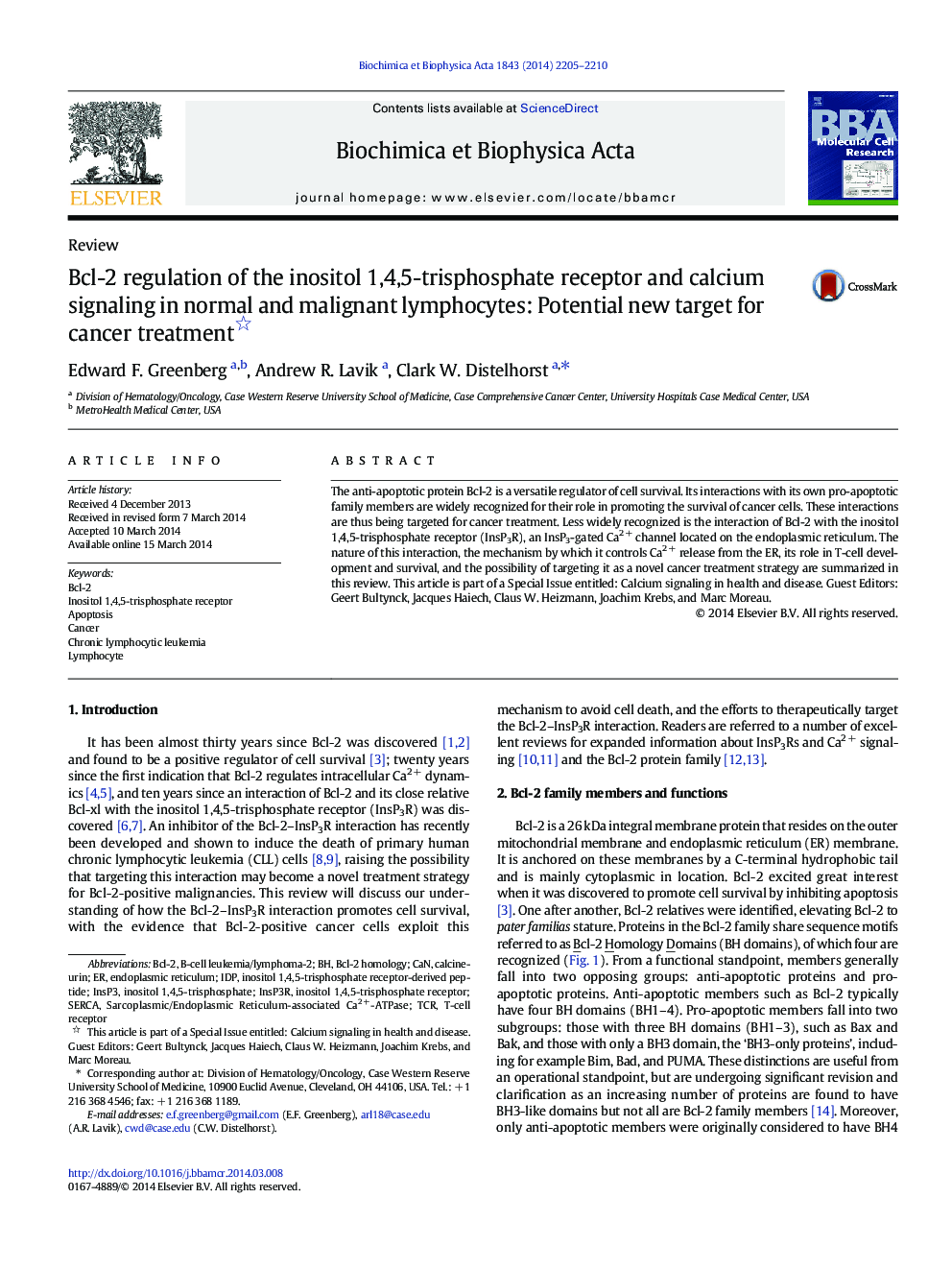| Article ID | Journal | Published Year | Pages | File Type |
|---|---|---|---|---|
| 1950549 | Biochimica et Biophysica Acta (BBA) - Molecular Cell Research | 2014 | 6 Pages |
•Marked elevation of intracellular calcium induces apoptosis.•Inositol 1,4,5-trisphosphate receptors mediate calcium elevation.•Bcl-2 binds to inositol 1,4,5-trisphosphate receptors to control calcium elevation.•Bcl-2 inhibits pro-apoptotic calcium elevation in cancer cells.•The control of calcium by Bcl-2 is a potential target for cancer therapy.
The anti-apoptotic protein Bcl-2 is a versatile regulator of cell survival. Its interactions with its own pro-apoptotic family members are widely recognized for their role in promoting the survival of cancer cells. These interactions are thus being targeted for cancer treatment. Less widely recognized is the interaction of Bcl-2 with the inositol 1,4,5-trisphosphate receptor (InsP3R), an InsP3-gated Ca2 + channel located on the endoplasmic reticulum. The nature of this interaction, the mechanism by which it controls Ca2 + release from the ER, its role in T-cell development and survival, and the possibility of targeting it as a novel cancer treatment strategy are summarized in this review. This article is part of a Special Issue entitled: Calcium signaling in health and disease. Guest Editors: Geert Bultynck, Jacques Haiech, Claus W. Heizmann, Joachim Krebs, and Marc Moreau.
